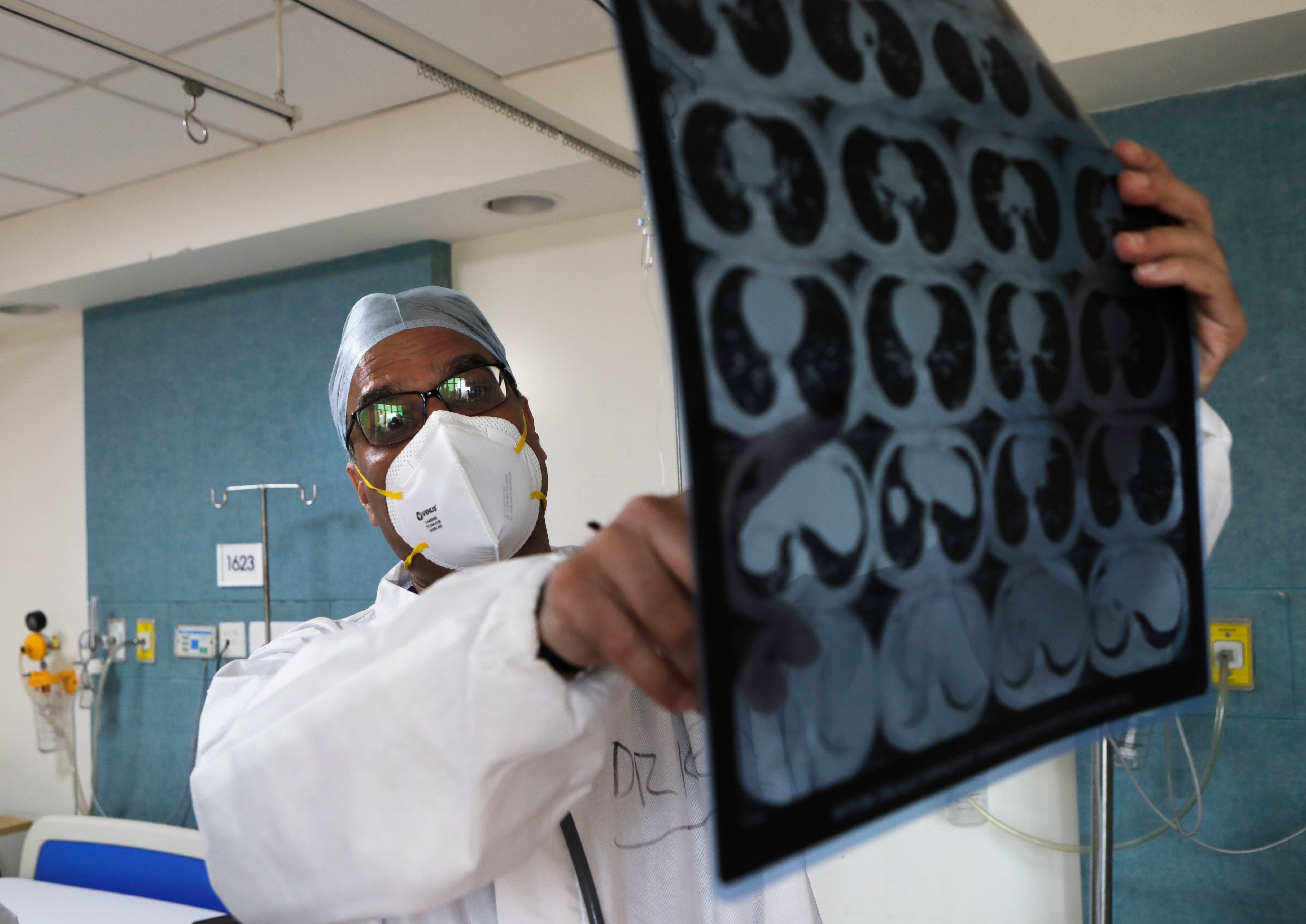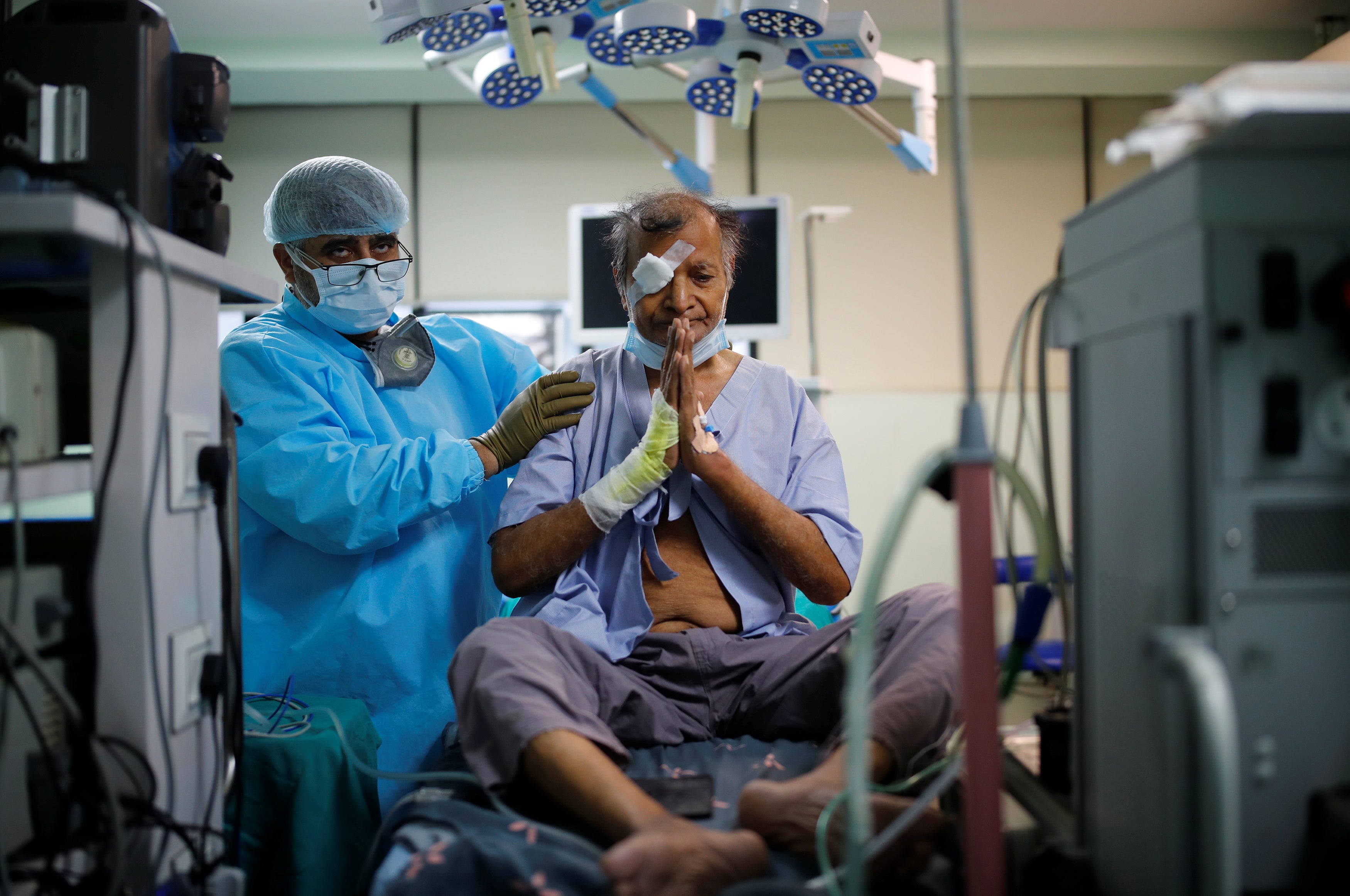Mounting evidence of link between Covid and ‘painfully crippling’ bone death in India
The bone disease is another post-Covid complication which can arise up to three months after infection

Your support helps us to tell the story
From reproductive rights to climate change to Big Tech, The Independent is on the ground when the story is developing. Whether it's investigating the financials of Elon Musk's pro-Trump PAC or producing our latest documentary, 'The A Word', which shines a light on the American women fighting for reproductive rights, we know how important it is to parse out the facts from the messaging.
At such a critical moment in US history, we need reporters on the ground. Your donation allows us to keep sending journalists to speak to both sides of the story.
The Independent is trusted by Americans across the entire political spectrum. And unlike many other quality news outlets, we choose not to lock Americans out of our reporting and analysis with paywalls. We believe quality journalism should be available to everyone, paid for by those who can afford it.
Your support makes all the difference.A rare disease known as avascular necrosis, or death of bone tissues is rearing its head in India among Covid patients as the country is now battling a surge in rare post-Covid complications.
At least 20 cases of avascular necrosis (AVN) have been reported in an Indian hospital in Mumbai city and three were reported in a Delhi hospital so far, hospital authorities told The Independent.
The disease in Covid patients has been linked to the use of steroids in treatment, which was also believed to be a causal factor in the outbreak of deadly fungal infections such as black fungus or mucormycosis over recent months.
Dr Mayank Vijayvargiya, a Joint Replacement Surgeon at PD Hinduja Hospital where 17 cases were reported after the second wave and three last year, said that more cases of AVN will likely emerge in the next few months as the disease takes a “considerable amount” of time to develop after Covid infection.
“Avascular necrosis is a condition wherein the blood supply to the bone gets obliterated and since the blood supply is cut off, the bone tissue dies,” Dr Vijayvargiya told The Independent.
For instance, he said if the hip joint, which supports our body weight when we walk or stand, is compromised with AVN then that part becomes structurally weak to support the weight and would cause pain.
Dr Sanjay Agarwala, Head of Orthopaedics and Traumatology at Hinduja hospital along with Dr Vijayvargiya recently got their study published by the British Medical Journal (BMJ) in which AVN was linked with Covid, detailing three case studies.
Dr Vijayvargiya said the previous use of steroids in treatment was a common factor in patients who went on to develop the “crippling bone disease.” But he said the use of steroids was often still effective in managing Covid.
“Steroids are lifesaving treatment and necessary in some cases. Not all patients who take steroids develop complications,” he added.
The emergence of the new disease among Covid patients comes amid rising fears over lethal post Covid complications. Indian states recently saw an outbreak of black fungus or mucormycosis cases with more than 40,000 cases reported in 18 states between April to May, according to the latest government data.
The skin-tissue eating disease was mostly reported in patients with diabetes or in severely immuno-compromised individuals. According to data by the Delhi government, at least 750 people are still struggling with mucormycosis in the capital alone.

Dr Vijayvargiya said that the AVN is not deadly but can be “painfully crippling” affecting bone and joint-segment of the patient.
“If not treated well the patient may have difficulty in walking and in later stages it can even require surgery. The disease is treatable and curable but patients need to watch out for pain around their hips or thighs,” he added.
Unlike the fungal infections, he said there is no group which has been found to be particularly susceptible to the disease so far. He also said they have observed that the bone disease develops more quickly in those patients who have had Covid, compared to cases before the pandemic, where it could take a year or two to develop after exposure to steroids.
In the study, the doctors detailed that the cases of AVN were found in patients aged 36, 37 and 39 after a minimum of 50 days of diagnosis of Covid-19. All the patients, who were doctors themselves, were administered intravenous steroids during the treatment for coronavirus and two of them did not have any history of joint pain.
All three patients have recovered after the treatment and resumed their work, he said.
While the study presented case studies of three patients that emerged last year around December, more cases have been found since.
Join our commenting forum
Join thought-provoking conversations, follow other Independent readers and see their replies
Comments